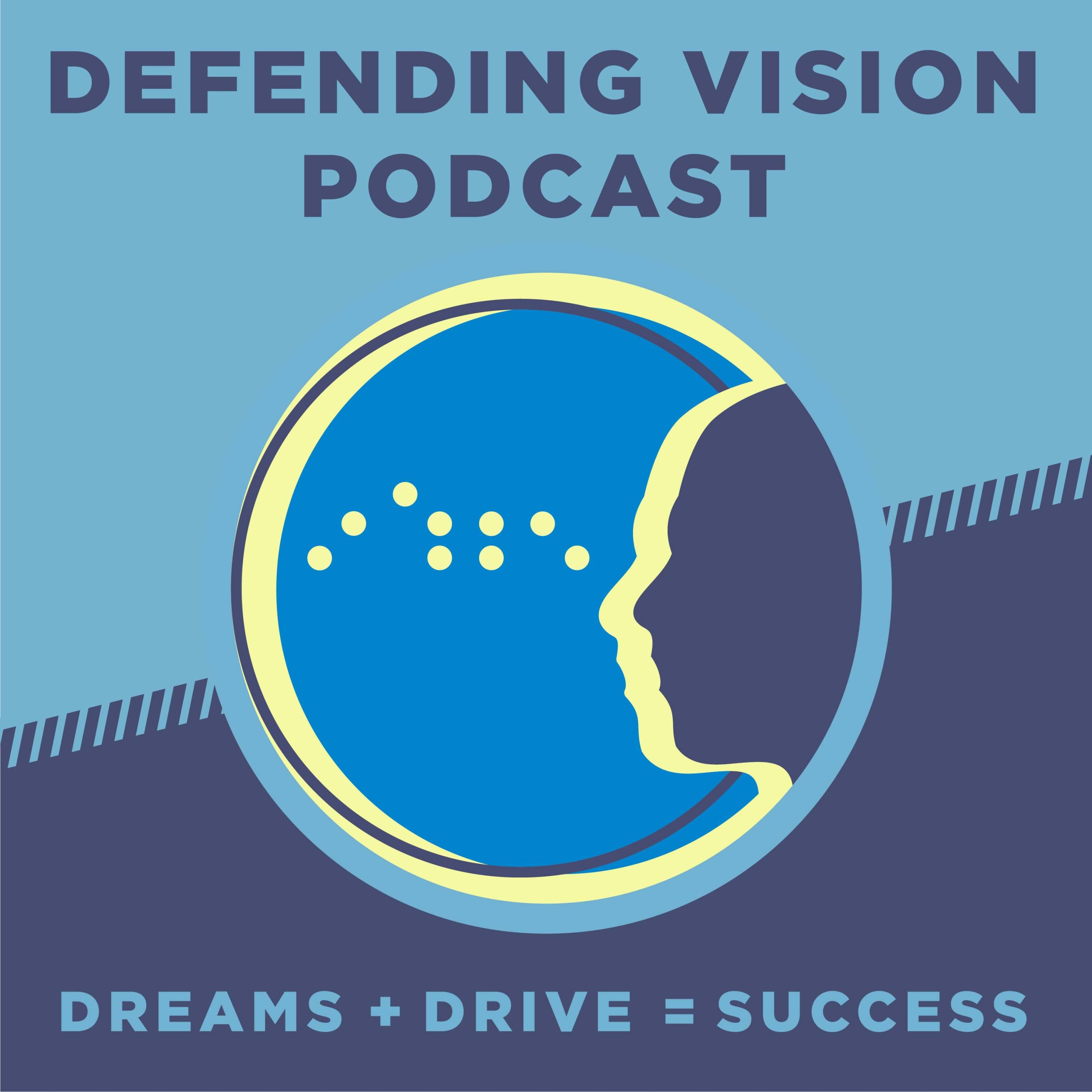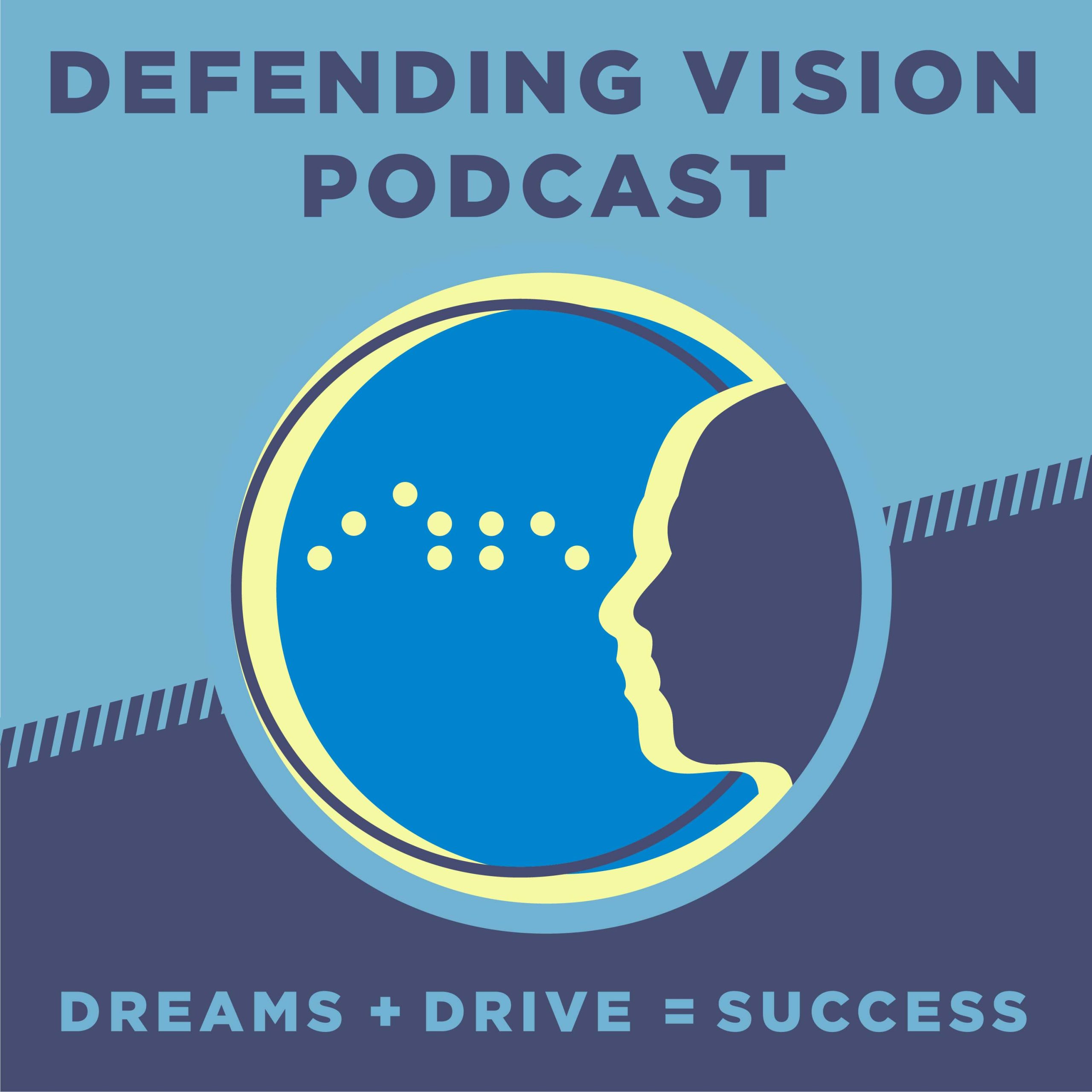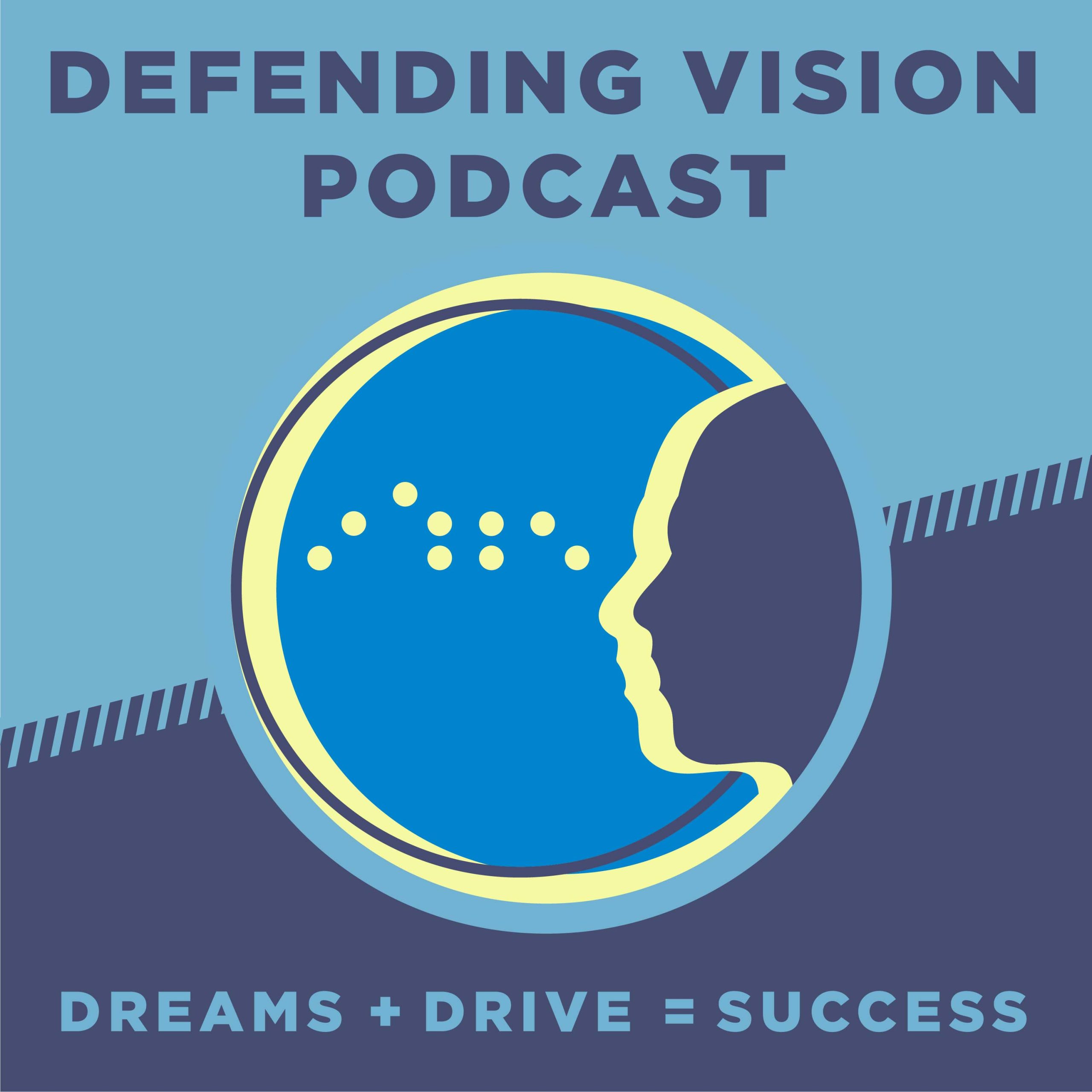Episode Transcript
[00:00:02] You never know when something you did in the past will come back around. It's not always a bad thing, though. I recently learned that a story from almost 15 years ago is still being read by young students all across the country. If you'd asked me, I would have thought the last copy was framed on my wall.
[00:00:19] Welcome to the Defending Vision podcast, where this blind man shows you exactly how he sees it, hardship, humor, and keeping a vision alive. Throw on some headphones for the full audio experience.
[00:00:36] Welcome back to the show. My apologies, but you're stuck with just me today. I have some wonderful guests lined up for the upcoming episodes, so don't worry.
[00:00:46] I thought today we would do something a little different and fun for a particular audience. When I first started working on the defending vision project, I set up a basic website, had a contact page. Within the first couple months, I started receiving emails from several teachers across the country.
[00:01:06] They were all telling me that their fourth grade class had just read a story called blind ambition.
[00:01:12] Honestly, it took me until the third email to even remember what that was.
[00:01:17] As it turns out, it's hanging on my wall.
[00:01:21] Back in high school, National Geographic kids did an awesome story. They came to where we were living in Durham, North Carolina, interviewed me, went out to the golf course, went to school. The story covers everything from my brain tumor diagnosis when I was three to playing paintball and to running the sound system for live performances at my high school.
[00:01:45] As one of the teachers who contacted me explained, this story is now included in a fourth grade reading textbook. This is absolutely wild.
[00:01:56] When I first told my sister, her immediate response was, wow, you're a historical figure and you're not even dead yet.
[00:02:04] A quick look around the Internet, I discovered that this story was, in fact, being read all across the country. There are quizzes and worksheets about me and my dog, Twyla. Anyway, a wonderful teacher in Virginia told me that her class had all written letters. They had questions they wanted to ask me, and she had done a lot of legwork to track me down. I still can't believe anyone found my website.
[00:02:32] In addition to these letters, however, we decided it would be fun to do a Zoom call with the class, and it was, in fact, a ton of fun. Their questions were fantastic and they were all extremely sweet.
[00:02:46] As it appears this story is being read all over the place, and some of these questions were insightful and others just fun. I thought it might be a good idea to do an episode answering a few of them.
[00:03:00] Okay, so we'll get started with one of the more common do I still have Twyla? And how old is she?
[00:03:07] So this story was written roughly 15 years ago now.
[00:03:12] Twyla worked with me from my freshman year to my senior year of high school.
[00:03:18] She then retired and was adopted by the animal science teacher at my high school.
[00:03:23] I am told she was given a lovely pink collar, was called Lila instead of Twyla, and got to lounge on the furniture whenever she wanted, which she never got to do as a working dog.
[00:03:35] Following onto that, what dog do I have now? Well, I'll go through them. My first dog, which I talked about in episode two, was bluenose. He was a half lab, half mountain Bernese from Quebec, Canada.
[00:03:48] I then received Twyla from guide dogs for the blind in San Rafael, California.
[00:03:54] After that, I've had Loti, another lab, mountain Bernese mix from Quebec, Solly, a pure lab from guide dogs of America in southern California, and now walker from Guide Dogs of America. Every dog has a unique personality that requires that I work with them differently.
[00:04:16] What was your favorite subject in school? Definitely math, algebra, geometry, calculus. Sounds crazy to a lot of people, but I enjoyed these a lot.
[00:04:28] Now, my teacher in high school, Mister David Greenhouse, stole the show with physics.
[00:04:35] He was an incredible teacher, and I cannot say enough about how much he did to make the class work for me. He worked incredibly hard to make things accessible and to ensure that I was fully engaged in the course.
[00:04:48] A special shout out to him.
[00:04:51] What college did you go to?
[00:04:54] So I had the incredible opportunity to go to Stanford University in Palo Alto, California.
[00:05:01] Still can't really believe I was accepted.
[00:05:04] The joke while I was there was that Stanford's acceptance rate had finally gone to a negative percentage. They were kicking him out faster than they were letting him in.
[00:05:14] Anyway. No school is perfect, but Stanford was a really great place to be. I met a number of people who would become instrumental in jumpstarting my career.
[00:05:24] As for what I studied while I was there, my focus was electrical engineering, learning the ins and outs of how computers and other sorts of devices work, and learning to write software for them as well.
[00:05:38] My major, however, was called science, technology, and society.
[00:05:43] I like to say everything.
[00:05:46] It had a core of engineering ethics, we'll say, beyond just learning the technical skills of math and science. In this major, we discussed the effects that technology has on our society, and also the effects that our society has on determining which technologies will succeed.
[00:06:10] Another question that several students ask. Do you live by yourself or with your parents?
[00:06:16] This is a great question, and in fact, many adults ask it as well. Since graduating high school. I have lived either in the dorms and college, or my own apartment condo, or now the house that I own in Florida.
[00:06:30] The trick is finding a place where I can walk to everything I need, either stores, maybe some restaurants, places I want to go, and a good area for the guide dog and I to walk. In college, some of the dorms we lived in were about a mile from the center of campus. There were times that the dog and I would walk about 6 miles every day to get to and from class.
[00:06:55] Do you still play golf?
[00:06:57] I do. In fact, the previous episode of this podcast talks a little bit about it. I'm certainly no pro, but I have enjoyed it.
[00:07:06] I have not played against any professional golfers. A couple students asked about that. I have met a few professional golfers, including Lee Jansen, Bubba Watson, Boo Weekly and others.
[00:07:19] All awesome people.
[00:07:21] You still play paintball? No, I havent done that in a long time. As I say in the story, there were a few times that we tried putting buzzers on my friends so that I could hear where they were. This didnt work particularly well, but we had some fun at the time.
[00:07:38] Another great question, is it hard to cross the street when you're blind? It's different. I have to use different tools and skills. Everybody is taught when they're young. Look both ways for me. I guess I have to listen both ways. I have to listen for both cars and people to understand what kind of intersection it is. Does it have stop signs, stop lights and how wide is the street? Then using the sound of the cars im able to determine when its safe to cross. There are a lot of skills that a blind person has to learn and practice. The person that helps them learn all of this is called an orientation and mobility instructor or O and M.
[00:08:21] Does the dog tell you when to cross the street?
[00:08:24] No, thats up to me. I have to listen to the cars and then tell the dog to go forward.
[00:08:31] Now the hardest thing that a guide dog is taught is that sometimes it should disobey.
[00:08:38] If I tell the dog to go forward and it sees a car coming too close, maybe coming very fast and I didn't hear it, things like that. This is especially true now with electric cars and hybrid cars because they're so quiet.
[00:08:55] If the dog sees something that might be dangerous, it should either not cross stop if we're already moving and sometimes even back up to get us out of the way.
[00:09:08] This is the hardest thing to teach a dog. Normally we train dogs to do exactly what we tell them. They learn a command and they do what that command is supposed to mean.
[00:09:19] When we say sit, they should sit. When we say lay down, they should lay down.
[00:09:25] In this case, we teach them that they have to determine if it's dangerous, and if it is, they have to disobey the command to go forward. This is called trained disobedience, and this is one of the things that makes guide dogs the best of the best.
[00:09:43] Okay, now one more question that apparently the entire class wants an answer to. Are you married and do you have kids?
[00:09:54] I appreciate the concern, but the answers for now are no. Hopefully one day that will change to wrap up it's really an amazing feeling to know that this story is going to outlive its initial publication in this way.
[00:10:09] I hope students get a couple messages from it. One, everyone has their own unique challenges to overcome.
[00:10:19] If we work hard, find creative ways of doing things, and make sure that we keep a sense of humor along the way, we can accomplish so many things. Keeping a sense of humor is key.
[00:10:33] Personally, I think taking life a little less seriously and keeping a good sense of humor is one of the most important things you can do.
[00:10:43] In the article I give one blind joke, but I feel it's appropriate to give another here.
[00:10:49] Why don't blind people skydive?
[00:10:53] Because it scares the dogs.
[00:10:56] Hopefully you enjoyed this episode and if any teachers or students come across this, feel free to reach out anytime.
[00:11:05] If you would like to learn more, go to defendingvision.com and if you enjoyed the show, rate, review and subscribe on Apple Podcasts, Google, Spotify, or wherever you find your podcasts. Thanks for listening.


